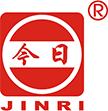How Durable are Expanding Files?
Expanding files are a popular solution for organizing paperwork—whether for school, home, or business. But how well do they hold up over time? In this article, we explore what impacts their durability, what makes a good one, and how brands like JINRI aim to deliver long-lasting expanding files.
What Determines the Durability of an Expanding File
Durability depends on several interlinked factors. Understanding these can help you choose a file that lasts.
| Factor | Why It Matters |
|---|---|
| Material | The substance from which the file is made strongly influences resistance to tearing, water damage, and deformation. Polypropylene (PP), for example, is known for being waterproof, moisture-proof, and relatively tear resistant. |
| Construction and Reinforcement | Features like reinforced edges, strong creases or folds, sturdy stitching or binding, and quality hinges matter. Weak points often occur where pockets expand, or along seams. |
| Design of Pockets / Expansion | Files that expand a lot may have more stress at the bottom fold or sides. How those expansion joints are reinforced, or how smoothly the material bends, contributes significantly to longevity. |
| Closure Mechanism | Whether the file uses snaps, buckles, flaps, elastic cords, or other closures affects its ability to keep papers secure and resist wear. A flap or elastic that fails means the file is less protective. |
| Usage Conditions | Exposure to moisture, rough handling, overstuffing, frequent transport—all these stress the file. Durability depends not just on quality but also how it's used. |
How Durable Can Good Expanding Files Be?
Given good design, materials, and care, high-quality expanding files can last many years. Typical signs of deterioration include:
The edges or corners becoming frayed or bent
Creases in the fold area cracking or splitting
The closure mechanism loosening or breaking
Discoloration or loss of clarity (if the file has transparent parts)
Material warping under heat or heavy weight
With polypropylene (PP) files, many users find that even under daily use—being taken in and out of bags, opened and closed repeatedly—the file remains functional and protective for several years, often outperforming paper or thin plastic alternatives.
What to Look For in a Durable Expanding File
When shopping, here are attributes to check:
Strong, flexible material — Polypropylene is very good; textured finishes can help hide scratches.
Reinforced fold bottoms / gussets — These absorb much of the stress during expansion.
Solid closure mechanism — A flap with secure fastener, or elastic cord, can make a big difference.
Labeling and pocket structure — Well-spaced pockets, labels, and separators help avoid overfilling one section, which can stress that part.
Good stitching or bonding (if relevant) and well-finished edges.
JINRI’s expanding file with flap: A Strong Example
If you’re looking for a particularly durable expanding file, JINRI Stationery offers a PP Expanding File with flap that incorporates many durability-enhancing features. Here’s a summary of what they provide:
Material: Made of polypropylene (PP), which gives waterproof and tear-proof protection. This helps guard papers from moisture damage and avoids easy deformation.
Variety of Pockets & Expansion: Available in multiple pocket configurations (1, 7, 13, 21 etc.), and with customizable thickness. This allows users to choose a model that won’t be overstuffed and will maintain structural integrity.
Flap & Closure Designs: Having a flap aids in covering pockets open at the top, which protects contents. Flap plus other closure methods (snap, buckle, elastic) are options, which helps maintain tightness and protect the documents inside.
Label Slot Design: Each pocket includes a label slot so users can organize and distribute load more evenly, avoiding stress in concentrated areas.
These design choices help the JINRI expanding file endure regular usage while keeping contents protected and organized.
Practical Tips to Extend the Life of Your Expanding File
Even the best file won’t last forever if misused. Here are tips to prolong lifespan:
Don’t overfill: Stick to capacity recommendations for pockets. Overfilling strains seams and closure mechanisms.
Avoid moisture exposure: Even waterproof materials perform better when kept dry where possible. After exposure to dampness, allow to air dry.
Handle folds gently: Especially when opening/closing, try to avoid sharply folding or bending.
Clean carefully: Wipe off dirt or spills promptly. Avoid harsh cleaners that degrade plastic.
Store properly: Lay flat when possible, or upright if supported. Avoid crushing or stacking heavy objects on top.
Conclusion
Expanding files, especially those made well and cared for, offer excellent durability. Key is the material choice, construction quality, design of expansion and closure, and mindful use. Brands like JINRI Stationery, with their PP Expanding File with Flap, demonstrate that many of the design best-practices are possible together: strong material, good closure, customizable pockets, and useful features. If selecting carefully and using with care, you can expect such a file to serve reliably for several years.
Previous: What Are D Rings?



